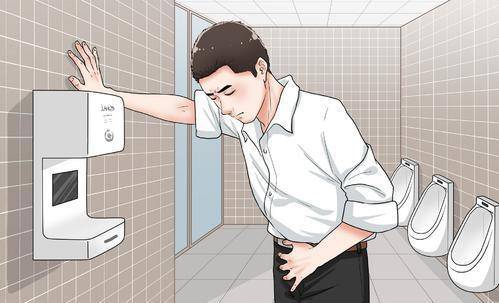Generally, everyone will experience nocturia at night, usually around 1-2 times, which falls within the normal range. Men may experience it more frequently, possibly two or more times in one night.
Nocturia can affect a person’s sleep quality. Most people associate it with kidney deficiency upon hearing the term, but besides this reason, there may be other causes leading to increased nocturia. Let’s first understand what constitutes frequent nocturia.
Nocturia refers to needing to get up to urinate during nighttime sleep, excluding the usual morning urine or urination before bed.
Frequent nocturia may result from increased urination frequency, increased urine volume, or a combination of both. The following three criteria can be used as reference:
Nocturnal urine volume/weight greater than 10 for several consecutive days, urinating more than 2 times upon waking, nocturnal urine volume exceeding daytime urine, or exceeding 500 milliliters (about a mineral water bottle).
Chronic kidney disease
The human kidneys, mainly located on both sides of the lower abdomen, primarily function to produce urine. When blood passes through the kidneys, they eliminate excess water, reabsorb it through the renal tubules, and eventually turn it into urine. If there are any abnormalities in this process or if the renal tubules are damaged, urine may not be reabsorbed, resulting in increased urine output, which is a manifestation of chronic kidney disease, particularly if nighttime waking frequency increases to 3-5 times, indicating issues with the renal tubules. Psychological factors may also contribute to increased nocturia as excessive tension can disrupt normal sleep patterns, preventing the elimination of this tension and causing a constant urge to urinate. Addressing these emotional stressors and improving the overall mental state can help avoid increased nocturia and prevent its interference with normal sleep. Diabetes Diabetes, a chronic metabolic disease, can also affect kidney function in the body. Individuals with diabetes may experience dry mouth and thirst, leading to increased water intake and consequently increased urination.
As blood sugar levels rise, urination frequency significantly increases, leading to fluid loss in the body and resulting in dry mouth. This becomes a vicious cycle, with daily urine output exceeding 5000 milliliters.
Bladder disease
Frequent nocturia can also be associated with bladder diseases in the human body. The bladder is an essential organ for storing urine. Once damaged, its ability to store urine decreases, leading to increased urine output.
Common conditions such as cystitis and bladder tumors can contribute to this, emphasizing the importance of timely medical checks to avoid missing the optimal treatment window, particularly in cases of increased nocturia, as these could be related to bladder diseases.
Diet control
It is advisable to limit salt intake to help the kidneys retain water. Avoid carbonated drinks and opt for drinking more plain water. Include potassium-rich foods in your diet, such as mushrooms, Chinese cabbage, beans, peanuts, and others.
Limit water intake
Try to consume less dense or high-water content foods during dinner, and control water intake before bedtime, avoiding strong tea or coffee.
Self-check for diseases
Whenever your body shows unusual signs, pay attention to them, identify the real underlying causes of any disease that may lead to increased nocturia, maintain a high level of vigilance, seek timely medical treatment, and undergo examinations. Occasional frequent urination is not a cause for concern, but if it persists over a period, it requires attention.


